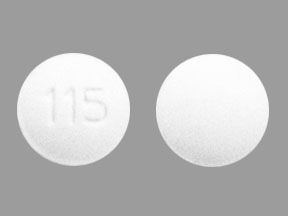Methamphetamine Interactions
There are 249 drugs known to interact with methamphetamine, along with 8 disease interactions, and 3 alcohol/food interactions. Of the total drug interactions, 44 are major, 200 are moderate, and 5 are minor.
- View all 249 medications that may interact with methamphetamine
- View methamphetamine alcohol/food interactions (3)
- View methamphetamine disease interactions (8)
Most frequently checked interactions
View interaction reports for methamphetamine and the medicines listed below.
- 5-HTP (5-hydroxytryptophan)
- Abilify (aripiprazole)
- Adderall (amphetamine / dextroamphetamine)
- Adderall XR (amphetamine / dextroamphetamine)
- Alcohol (contained in alcoholic beverages) (ethanol)
- Ambien (zolpidem)
- Ativan (lorazepam)
- Benadryl (diphenhydramine)
- Concerta (methylphenidate)
- Cymbalta (duloxetine)
- Flexeril (cyclobenzaprine)
- Klonopin (clonazepam)
- Lamictal (lamotrigine)
- Lexapro (escitalopram)
- Lyrica (pregabalin)
- Paracetamol (acetaminophen)
- Prozac (fluoxetine)
- Ritalin (methylphenidate)
- Seroquel (quetiapine)
- Suboxone (buprenorphine / naloxone)
- Truvada (emtricitabine / tenofovir disoproxil)
- Valium (diazepam)
- Vitamin B12 (cyanocobalamin)
- Vitamin C (ascorbic acid)
- Vitamin D3 (cholecalciferol)
- Vyvanse (lisdexamfetamine)
- Wellbutrin XL (bupropion)
- Xanax (alprazolam)
- Zofran (ondansetron)
- Zoloft (sertraline)
Methamphetamine alcohol/food interactions
There are 3 alcohol/food interactions with methamphetamine.
Methamphetamine disease interactions
There are 8 disease interactions with methamphetamine which include:
- cardiac disease
- hypertension
- psychiatric disorders
- substance abuse
- tics
- liver disease
- renal dysfunction
- seizure disorders
More about methamphetamine
- methamphetamine consumer information
- Compare alternatives
- Pricing & coupons
- Reviews (77)
- Drug images
- Side effects
- Dosage information
- During pregnancy
- Support group
- Drug class: anorexiants
- Breastfeeding
- En español
Related treatment guides
Drug Interaction Classification
| Highly clinically significant. Avoid combinations; the risk of the interaction outweighs the benefit. | |
| Moderately clinically significant. Usually avoid combinations; use it only under special circumstances. | |
| Minimally clinically significant. Minimize risk; assess risk and consider an alternative drug, take steps to circumvent the interaction risk and/or institute a monitoring plan. | |
| No interaction information available. |
See also:
Further information
Always consult your healthcare provider to ensure the information displayed on this page applies to your personal circumstances.


